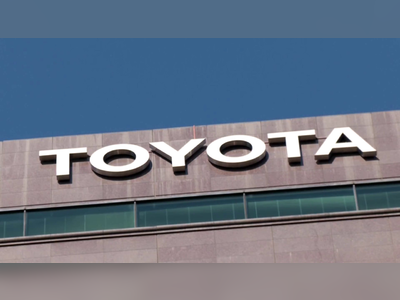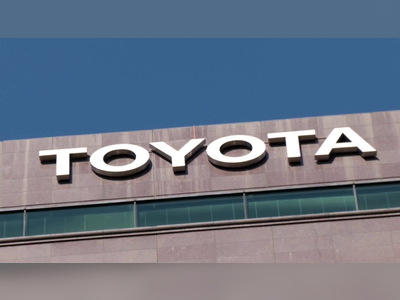
Lufthansa Expands Luxury Offerings with Major Fleet Renewal
The German airline aims to modernize its fleet and enhance its premium services by 2027.
Lufthansa, Germany's flagship airline, is set to embark on an ambitious initiative to modernize its fleet and upgrade its premium services, aiming to bolster its brand image and attract higher-end travelers.
Announced by CEO Jens Ritter, the plan involves introducing 61 new aircraft, representing the largest fleet renewal in the company's nearly 100-year history.
The refurbishment is scheduled to be fully realized by the end of 2027, with the airline committing to an average of one new aircraft every two weeks.
Notably, this initiative includes the addition of 29 Boeing 787-9 Dreamliners, deliveries of which have been delayed due to manufacturing issues at the American aircraft manufacturer.
Integral to this initiative is the launch of Lufthansa's new first-class product, named 'Allegris,' after a five-year postponement.
The redesigned first-class cabin will feature fully enclosed private suites, including double beds, aimed at affluent travelers seeking a luxurious in-flight experience.
The airline has articulated a goal to reclaim its status as Europe's leading premium airline, following a turbulent period marked by challenges in the wake of the COVID-19 pandemic.
In 2023, Lufthansa faced significant operational challenges, including adverse publicity stemming from flight delays, lost baggage incidents, and ground service complaints.
The airline reported a downturn in profits last year, with earnings declining by 18% to approximately €1.4 billion.
Consequently, Lufthansa's strategy involves not only fleet modernization but also a comprehensive overhaul of the service experience across all travel classes.
The airline has indicated that economy class passengers will see improvements in legroom, while enhancements in onboard dining, service quality, and entertainment options are expected to elevate the overall travel experience.
The rollout of the 'Allegris' seating was initially intended for five years ago but was delayed primarily due to the impacts of the pandemic and subsequent supply chain disruptions.
Despite ongoing concerns regarding the geopolitical climate and a perceived downturn in international travel interest, CEO Ritter expressed optimism about the enduring demand for air travel.
He pointed out a notable shift in passenger demographics, highlighting a decrease in business travelers juxtaposed with a noteworthy rise in private travel, thereby reflecting changing consumer patterns within the aviation sector.
Lufthansa's extensive strategy underscores a dual focus not only on fleet enhancement but also on elevating the customer experience, indicating a significant response to the myriad challenges faced by the airline industry in recent years.
Announced by CEO Jens Ritter, the plan involves introducing 61 new aircraft, representing the largest fleet renewal in the company's nearly 100-year history.
The refurbishment is scheduled to be fully realized by the end of 2027, with the airline committing to an average of one new aircraft every two weeks.
Notably, this initiative includes the addition of 29 Boeing 787-9 Dreamliners, deliveries of which have been delayed due to manufacturing issues at the American aircraft manufacturer.
Integral to this initiative is the launch of Lufthansa's new first-class product, named 'Allegris,' after a five-year postponement.
The redesigned first-class cabin will feature fully enclosed private suites, including double beds, aimed at affluent travelers seeking a luxurious in-flight experience.
The airline has articulated a goal to reclaim its status as Europe's leading premium airline, following a turbulent period marked by challenges in the wake of the COVID-19 pandemic.
In 2023, Lufthansa faced significant operational challenges, including adverse publicity stemming from flight delays, lost baggage incidents, and ground service complaints.
The airline reported a downturn in profits last year, with earnings declining by 18% to approximately €1.4 billion.
Consequently, Lufthansa's strategy involves not only fleet modernization but also a comprehensive overhaul of the service experience across all travel classes.
The airline has indicated that economy class passengers will see improvements in legroom, while enhancements in onboard dining, service quality, and entertainment options are expected to elevate the overall travel experience.
The rollout of the 'Allegris' seating was initially intended for five years ago but was delayed primarily due to the impacts of the pandemic and subsequent supply chain disruptions.
Despite ongoing concerns regarding the geopolitical climate and a perceived downturn in international travel interest, CEO Ritter expressed optimism about the enduring demand for air travel.
He pointed out a notable shift in passenger demographics, highlighting a decrease in business travelers juxtaposed with a noteworthy rise in private travel, thereby reflecting changing consumer patterns within the aviation sector.
Lufthansa's extensive strategy underscores a dual focus not only on fleet enhancement but also on elevating the customer experience, indicating a significant response to the myriad challenges faced by the airline industry in recent years.
AI Disclaimer: An advanced artificial intelligence (AI) system generated the content of this page on its own. This innovative technology conducts extensive research from a variety of reliable sources, performs rigorous fact-checking and verification, cleans up and balances biased or manipulated content, and presents a minimal factual summary that is just enough yet essential for you to function as an informed and educated citizen. Please keep in mind, however, that this system is an evolving technology, and as a result, the article may contain accidental inaccuracies or errors. We urge you to help us improve our site by reporting any inaccuracies you find using the "Contact Us" link at the bottom of this page. Your helpful feedback helps us improve our system and deliver more precise content. When you find an article of interest here, please look for the full and extensive coverage of this topic in traditional news sources, as they are written by professional journalists that we try to support, not replace. We appreciate your understanding and assistance.











